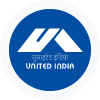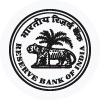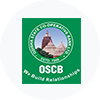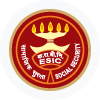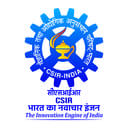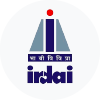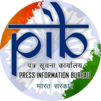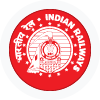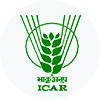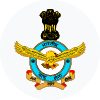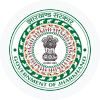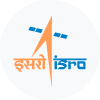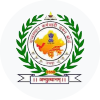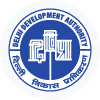NABARD Grade A 2025 Syllabus
The syllabus for Reasoning, Quantitative Aptitude, Computer Knowledge and General Awareness for the Phase 1 Exam is the same as that of banking exams. Following is a list of the topics to be prepared for these sections and for sections of ESI & ARD.
NABARD Grade A Reasoning Syllabus
Puzzles (Seating arrangement, linear seating arrangement, floor-based), Syllogism, Data sufficiency, Statement-based questions (Verbal reasoning), Inequality, Miscellaneous Questions, Input-Output, Blood relations, etc.
NABARD Grade A Quantitative Aptitude Syllabus
Data Interpretation, Quadratic Equations, Number Series, Simplification/ Approximation, Profit & Loss, SI & CI Interest, Data Sufficiency, etc.
NABARD Grade A Computer Knowledge Syllabus
Networking, Input-output devices, DBMS, MS Office, Internet, History of computer & generations, etc.
NABARD Grade A General Awareness Syllabus
Current Affairs (Agriculture Focused), Banking Awareness and Economy (Agriculture Focused), Agricultural Insurance, Important people in the news, Sports News, Appointments, etc.
NABARD Grade A English Syllabus
Reading comprehension, Cloze test, Sentence improvement, Spotting the errors, Fill in the blanks, Sentence rearrangement
NABARD Grade A Agriculture and Rural Development (ARD) Syllabus
Agriculture: Definition, meaning and its branches, Agronomy: definition, meaning and scope of agronomy. Classification of field crops. Factors affecting crop production, Agro Climatic Zones; Cropping Systems: Definition and types of cropping systems.Problems of dryland agriculture, Seed production, Seed processing, Seed village
Meteorology: weather parameters, crop-weather advisory; Precision Farming, System of Crop Intensification, organic farming.
Soil and Water Conservation: Major soil types, soil fertility, fertilisers, soil erosion, soil conservation, watershed management.
Water Resource: Irrigation Management: types of irrigation, sources of irrigation, crop-water requirement, command area development, water conservation techniques, micro-irrigation, irrigation pumps, major, medium, and minor irrigation.
Farm and Agri Engineering: Farm Machinery and Power, Sources of power on the farm- human, animal, mechanical, electrical, wind, solar and biomass, biofuels, water harvesting structures, farm ponds, watershed management, Agro-Processing, Controlled and modified storage, perishable food storage, godowns, bins and grain silos.
Plantation & Horticulture: Definition, meaning and its branches. Agronomic practices and production technology of various plantation and horticulture crops. Post-harvest management, value and supply chain management of Plantation and Horticulture crops.
Animal Husbandry: Farm animals and their role in the Indian economy, Animal husbandry methods in India, common terms pertaining to different species of livestock, Utility classification of breeds of cattle. Introduction to common feeds and fodders, their classification and utility. Introduction to the poultry industry in India (past, present and future status), Common terms pertaining to poultry production and management. Concept of mixed farming and its relevance to socio-economic conditions of farmers in India. Complimentary and obligatory nature of livestock and poultry production with that of agricultural farming.
Fisheries: Fisheries resources, management, and exploitation - freshwater, brackish water and marine; Aquaculture- Inland and marine; biotechnology; post-harvest technology. Importance of fisheries in India. Common terms pertaining to fish production.
Forestry: Basic concepts of Forest and Forestry. Principles of silviculture, forest mensuration, forest management and forest economics. Concepts of social forestry, agro-forestry, joint forest management. Forest policy and legislation in India, India State of Forest Report 2015. Recent developments under the Ministry of Environment, Forest, and Climate Change.
Agriculture Extensions: Its importance and role, methods of evaluation of extension programmes, Role of Krishi Vigyan Kendra's (KVK) in the dissemination of Agricultural technologies.
Ecology and Climate Change: Ecology and its relevance to man, natural resources, their sustainable management, and conservation. Causes of climate change, Green House Gases (GHG), major GHG emitting countries, climate analysis, distinguish between adaptation and mitigation, climate change impact to agriculture and rural livelihood, carbon credit, IPCC, UNFCCC, CoP meetings, funding mechanisms for climate change projects, initiatives by Govt of India, NAPCC, SAPCC, INDC.
Present Scenario of Indian Agriculture and Allied activities: Recent trends, major challenges in agriculture measures to enhance the viability of agriculture. Factors of Production in agriculture, Agricultural Finance and Marketing, Impact of Globalization on Indian Agriculture and issues of Food Security, Concept and Types of Farm Management.
Rural Development: Concept of Rural Area, Structure of the Indian Rural Economy- Importance and role of the rural sector in India - Economic, Social and Demographic Characteristics of the Indian rural economy, causes of Rural Backwardness. Rural population in India; Occupational structure, Farmers, Agricultural Labourers, Artisans, Handicrafts, Traders, Forest dwellers/tribes and others in rural India- Trends of change in rural population and rural workforce; problems and conditions of rural labour; Issues and challenges in Handlooms Panchayati Raj Institutions – Functions and Working. MGNREGA, NRLM – Aajeevika, Rural Drinking water Programmes, Swachh Bharat, Rural Housing, PURA, and other rural development programmes.
NABARD Grade A Economic & Social Issues Syllabus
Nature of Indian Economy - Structural and Institutional features - Economic underdevelopment - Opening the Indian Economy - Globalisation - Economic Reforms in India - Privatisation.
Inflation - Trends in Inflation & their Impact on National Economy and Individual Income.
Poverty Alleviation and Employment Generation in India - Rural and Urban - Measurement of Poverty - Poverty Alleviation Programmes of the Government. Population Trends - Population Growth and Economic Development - Population Policy in India.
Agriculture - Characteristics / Status - Technical and Institutional changes in Indian Agriculture - Agricultural performance - Issues in Food Security in India - Non-Institutional and Institutional Agencies in rural credit. Industry - Industrial and Labour Policy - Industrial performance - Regional Imbalance in India's Industrial Development - Public Sector Enterprises.
Rural banking and financial institutions in India - Reforms in Banking/ Financial sector.
The globalisation of the Economy - Role of International Funding Institutions - IMF & World Bank - WTO - Regional Economic Co-operation.
Social Structure in India - Multiculturalism - Demographic trends - Urbanisation and Migration - Gender Issues Joint family system - Social Infrastructure - Education - Health and Environment. Education - Status & System of Education - Socio-Economic Problems associated with Illiteracy - Educational relevance and educational wastage - Educational Policy for India. Social Justice: Problems of scheduled castes and scheduled tribes - socio-economic programmes for scheduled castes and scheduled tribes and other backward classes.
Positive Discrimination in favour of the underprivileged - Social Movements - Indian Political Systems - Human Development. Current Economic & Social Issues.
 Mock Tests
Mock Tests Category
Category
















